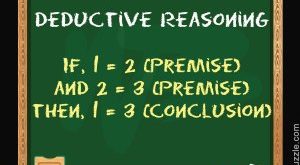from Peter Radford What am I supposed to make of the Scheidel book? Having waded through it I emerge with a grim pessimism — certainly more than when I started. The basic thesis, as I mentioned a couple of weeks ago, is that periods of relatively greater equality are rare in history and that they ebb away soon after the re-establishment of elite control over the distribution of national resources. Worse, the relative equality that is then undone was only the result of some disastrous...
Read More »A challenge to traditional accounting systems
from Peter Söderbaum Present accounting systems at the national and organizational level are closely connected with neoclassical economics. The main parameter in national accounting is Gross Domestic Product (GDP). Other macroeconomic indicators are consumption, investments, exports, imports. These variables are all monetary in kind. But as has (hopefully) been made clear, present threats to mankind are as much, if not more, of a non-monetary kind. Today “sustainable development” has...
Read More »On the use of logic and mathematics in economics
from Lars Syll Logic, n. The art of thinking and reasoning in strict accordance with the limitations and incapacities of the human misunderstanding. The basic of logic is the syllogism, consisting of a major and a minor premise and a conclusion – thus: Major Premise: Sixty men can do a piece of work sixty times as quickly as one man. Minor Premise: One man can dig a post-hole in sixty seconds; Therefore- Conclusion: Sixty men can dig a post-hole in one second. This may be called syllogism...
Read More »Anthropologists and inequality
from Ken Zimmerman Inequality in human societies has always existed. When it become extreme (that point varies by society and historical circumstances) the society either collapses completely (e.g., revolution, war, failure of basic services, famine) or undergoes changes in its basic framework. Ancient Rome, for example, nearly collapsed when corruption in government and economics (particularly appalling poverty) combined with refusal of its citizens (particularly the wealthy) to put...
Read More »Employment for all
from Asad Zaman Global experience shows that market economies create massive inequalities, enriching the top one per cent, while leaving the bottom of the population far behind. One key to prosperity is to provide productive jobs for all who would like to participate in the production process. Unfortunately, contemporary macroeconomics, which was blind to the possibility of the global financial crisis, is not equipped with the ideas and tools required to create full employment....
Read More »Trump Fed nominee Stephen Moore predicts big downward redistribution of wealth if Trump defeated
from Dean Baker Moore said it would take the form of “the biggest sell-off in the stock market in American history.” Since stock is overwhelmingly held by the wealthy, if the market plunges, it means that wealthy will have relatively less wealth. It is important to remember that the stock market in principle represents the value of future after-tax corporate profits. This means that any measure that should increase after-tax profits, such as the Republicans’ corporate tax cut, should lead...
Read More »Micro/macro
from Dave Taylor . . . most heterodox critics of the mainstream are thinking “macro” – of the economy as a whole – whereas most mainstream economists are still thinking “micro”, assuming what is true of all is true of any, and confusedly suggesting the many different things true of any and at different times are always true of all. Consider the analogy of ships in an exogenously choppy sea. The equilibrists are right, the waves will even out; and the rationalists are right: the navigators...
Read More »Paul Davidson and yours truly on Keynesian and Knightian uncertainty
from Lars Syll A couple of years ago yours truly had an interesting discussion — on the Real-World Economics Review Blog — with Paul Davidson on ergodicity and the differences between Knight and Keynes re uncertainty. It all started with me commenting on Davidson’s article Is economics a science? Should economics be rigorous? : LPS: Davidson’s article is a nice piece – but ergodicity is a difficult concept that many students of economics have problems with understanding. To understand...
Read More »Near and dear to the hearts of today’s economists
from Ken Zimmerman “The propositions of economic theory are derived by logical reasoning from these assumptions in exactly the same way as the theorems of geometry are derived from the axioms upon which the system is built.” Which without fail ends with the conclusion you set out, “A theory as an internally consistent system is valid if the conclusions follow logically from its premises, and the fact that neither the premises nor the conclusions correspond to reality may show that the...
Read More »On the impossibility of objectivity in science
from Lars Syll Operations Research does not incorporate the arts and humanities largely because of its distorted belief that doing so would reduce its objectivity, a misconception it shares with much of science. The meaning of objectivity is less clear than that of optimality. Nevertheless, most scientists believe it is a good thing. They also believe that objectivity in research requires the exclusion of any ethical-moral values held by the researchers. We need not argue the desirability...
Read More » Real-World Economics Review
Real-World Economics Review



